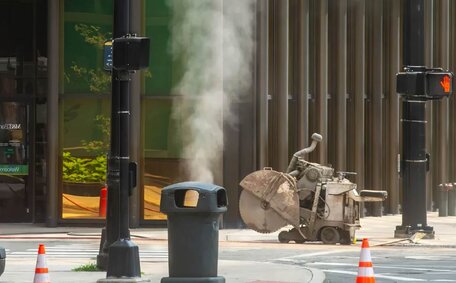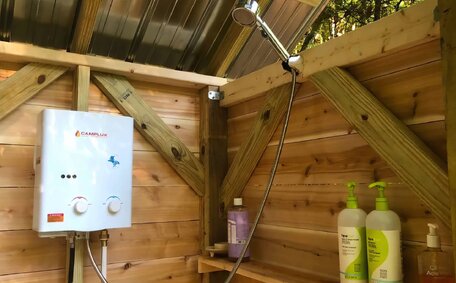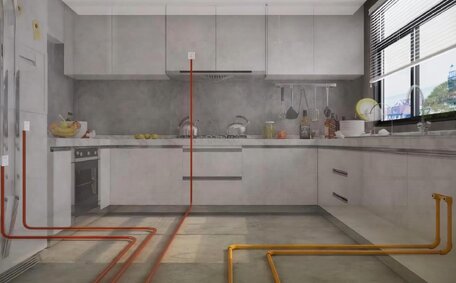
How To Move A Gas Meter
Need your gas meter relocated? You can’t move it yourself - contact your supplier to arrange for a gas engineer to reposition it safely. Charges may apply depending on circumstances.
Read MoreStaying alert for any potential gas leaks in your home is crucial. A distinct rotten egg smell, which is intentionally added to natural gas, usually indicates a gas leak. This distinctive odour signals a suspected gas leak and the possibility of natural gas propane escaping.
Additional signs include hearing hissing sounds from gas appliances or seeing physical damage to gas lines.
If you detect any of these warnings, do not try to find the exact source of the leak yourself. Avoid using electrical devices or lighting flames, particularly during a suspected gas leak, which could ignite the gas. Ventilate your home to let fresh air in and potentially hazardous gases out by opening all doors and windows, if it’s safe.
Immediately evacuate your home in the event of a gas leak and, after shutting off the main valve if possible, contact emergency services from outside.
Following safety tips and taking proactive measures can mitigate the risks of sudden gas leaks. Regular inspections of your gas appliances by licensed technicians are essential. Look out for early signs of gas leaks, like wear on gas appliance pipes and fittings. Maintain up-to-date home insurance that covers gas leaks.
Being vigilant for signs of a potential gas emergency ensures the swift safety of your family and home.
If I do smell gas inside my home, immediate action is critical. Follow these vital steps without delay:
Taking swift action by following these steps is essential for safety and can prevent potential catastrophes. The highest priority is safely evacuating yourself and others from the area. Attempting to locate the exact source of the leak on your own can be extremely hazardous.
What to do when I smell gas? Contact a licensed plumber gas specialist once the premises is confirmed safe, stating 'I smell gas’ as your reason for concern. They can then investigate and locate source of the leak, and make necessary repairs.
If you detect the smell of gas inside your home, evacuating quickly yet calmly is vital. Follow such key steps for your safety:
Evacuation aims to remove all people from harm’s way quickly. Attempting to locate the exact source of the gas leak yourself can be extremely dangerous, so evacuate immediately then call trained professionals.
An important step in the event of a gas leak is to ventilate the area to help disperse the gas. As you evacuate, open all doors and windows to air out your home if it is safe and quick to do so, without delaying your exit. This allows fresh air to circulate and dilute the gas in the affected area your property may have been infiltrated with.
Prioritizing a safe evacuation is more important than ventilation; do not try to locate the leak source or delay your exit.
Leave immediately and, once you’re at a safe distance, call emergency services.
Once outside and safe, contacting a licensed gas fitter should be your next step. Emergency gas technicians have specialised equipment to then ventilate the area far more effectively. They can also locate the source leak and make necessary repairs after inspecting that conditions are stable.
After evacuating due to a gas leak, the next critical step is to contact emergency services. Call 000 immediately from outside the home and safely away from the leak area, then follow up with a licensed gasfitter. Inform them about the gas odour detected and your current location.
You should also contact your gas utility company or licenced gas fitter to report the leak and to inquire about steps to take after gas exposure. Have their emergency number readily available, but do not try to find or call it from inside the home during an active leak. Once outside, you can safely call your provider such as:
Provide emergency responders with a clear description of the detected gas smell and your evacuation actions, then call your gas supplier. Follow any safety recommendations until officials confirm it is safe to re-enter the premises. Never ignore a major gas leak or attempt to locate its source yourself.
Do not operate any gas appliances if you suspect a gas leak. Do not try to diagnose where gas may be escaping or attempt repairs. Switching off your gas supply can cause dangerous sparks.
Evacuate immediately without touching gas utilities. Once safe, contact licensed professionals for assistance. Then call emergency services and gas fitters from outside. Never take risks attempting to locate or fix leaks yourself.
Having lp gas appliances regularly serviced by qualified technicians is vital prevention. They will examine your system for any faults that might result in future gas leaks. Be sure to keep records of all servicing.
If you smell gas, trust professionals to handle your gas utilities safely once evacuation is complete. Call 000 and your gas provider right away rather than endangering yourself or others.
Ensure emergency services or gas technicians confirm the area is safe before allowing anyone to re-enter a property after a gas leak evacuation. Never assume conditions are stable on your own without this professional clearance.
Even after safety is assured, arranging a follow-up inspection with certified gas fitters is prudent. They can then investigate the cause of the leak and address any underlying issues needing repair to prevent future hazards.
It is also prudent to contact your insurance provider to review your coverage regarding potential gas leak damage. Keep documentation on all actions taken during and after the leak event.
Ensuring ongoing safety around gas supply lines requires vigilance even after an emergency. Stay alert to any lingering gas odours in subsequent days. Continue leak-prevention tactics like having appliances inspected regularly.
While gas leaks can be extremely dangerous if mishandled, appropriate response guided by experts can get your home safely up and running again.
Proactively taking steps to prevent gas leaks is essential for homeowners. This includes having your gas lines, connections, and appliances inspected annually by licenced technicians. Technicians can check for leaks and deterioration like faulty pilot lights or safety issues that could compromise your home’s gas supply.
It’s also wise to have a clear emergency plan that every family member understands, covering steps like evacuation procedures, where to meet outside, and who to contact. Post important phone numbers for emergency services, your gas utility provider, and your local trusted plumbers visibly inside your home.
Ensure the areas near gas appliances and your meter are free of obstructions. Do not store combustible materials or chemicals nearby that could ignite from a leak. Make sure children are educated on the risks of gas and what to do if they smell that distinct 'rotten eggs’ odour; knowledge can help them stay safe.
Taking preventive actions around gas supply safety pays dividends if an leak ever occurs by enabling a swift, coordinated response. This limits dangers to your family and home. Stay vigilant year-round in inspection, maintenance and planning.
Installing carbon monoxide detectors is a wise precaution to prevent the risk of monoxide poisoning from potential gas escapes. Set up carbon monoxide and gas detectors according to manufacturer specifications, usually on walls or ceilings. Conduct monthly tests on these detectors and replace batteries yearly or as indicated.
For optimal safety, place a carbon monoxide detector on each floor of your home. Gas detectors are best located near common gas appliance areas like furnace rooms, kitchens, near the gas heater, etc. Make sure detectors are unobstructed and not covered.
When choosing detectors, look for properly certified and Australian Gas Association approved models. Choose detectors with comprehensive safety features from reputable suppliers. Consider systems that automatically trigger the shutoff valve upon detecting leaks for added security.
While an alarm may indicate a leak of gas propane, always evacuate your home safely and confirm with professionals before re-entering. Always heed detector warnings. Regular testing and maintenance will keep your systems operational.
Early alerts from a properly functioning detector provide vital reaction time when gas leaks occur in your home. This enables earlier shut-off and evacuation to maximise safety for your household.
Need your gas meter relocated? You can’t move it yourself - contact your supplier to arrange for a gas engineer to reposition it safely. Charges may apply depending on circumstances.
Read MoreInvesting in a solar hot water system can save up to 75% on water heating costs. With great returns and added home value, solar hot water can be a smart choice over electric or gas heaters. Contact us to see if it’s the right investment for your home.
Read MoreWhile natural gas and propane can both power appliances in your home, they have notable differences when it comes to BTU output, infrastructure, safety, cost and more. Understanding these key contrasts will help you determine which is better for your specific needs.
Read MoreMenai, 2234 NSW
We will call back as soon as possible.




